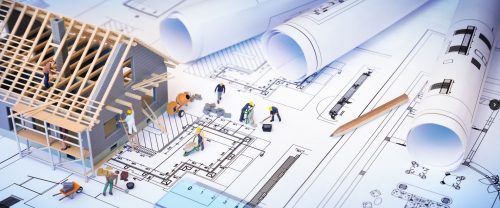
Buyers can customize manufactured homes to fit their needs and financial circumstances, making them a crucial source of affordable homes. Although less expensive than housing estates, you can still purchase chimney, stroll wardrobes, and stainless steel appliances. Nevertheless, they are subject to a number of rules and regulations.
If you’re thinking about buying a modular home, here’s what you should understand.
What Exactly Is a Manufactured Home?
Unlike traditional stick-built or site-built homes, which are constructed with individual components on the site where they’ll stand, manufactured homes are constructed in a factory before being decided to move to the owner’s chosen place.
The concept “manufactured home” makes reference to every large factory built after June 15, 1976. This was when the United States Department of Housing and Urban Development (HUD) imposed tighter rules on the construction of mobile homes and other production plant homes.
Mobile Home vs. Manufactured Home:
A mobile home is a manufactured home built prior to actually June 15, 1976. These homes, as the title suggests, are mobile. Early versions of mobile homes earned a bad reputation because they were commonly poorly constructed and quickly devalued in value.
However, trailer homes have evolved a great deal since then. Modern mobile homes are not designed to be shifted multiple times. They’re also much more secure and relaxing architecturally. Mobile homes, in fact, come in a variety of architectural plans and accommodations, such as properly equipped kitchens and spacious private rooms.
Newly developed mobile new houses after June 15, 1976, are now officially known as manufactured homes, though they are still generally referred to as mobile homes informally. Even if they have been upgraded, mobile new houses prior to this time frame do not meet the criteria as manufactured homes.
Manufactured Home vs. Modular Home:
Modular homes are also built in a factory. They are, however, constructed in sections that are then transported to the location and repaired together on a steady basis. It is extremely unlikely that the house will ever be relocated once more.Such homes are not required to comply with the very same HUD standards as manufactured homes, but they must comply with the same federal, condition, and local building codes as site-built homes.
How to Purchase a Mobile Home:
When it comes to buying a manufactured home, you have a few options. In overall, buying a house is comparable to purchasing a car; there are retail outlets who specialize in these properties, and you can buy some new used or homes. Financing is also available through manufactured home dealers, and the home can be customized with a variety of accommodations. Typically, the vendor also will co – ordinate installation and delivery.
To discover manufactured houses for sale, you also can work with a real-estate agent or peruse real estate classifieds on manufactured home online markets. You also can purchase items from such a holder in some states.
The Price of a Manufactured Home:
A few factors will influence the price of your manufactured home. For one thing, the actual cost of a home can vary based on its size. You can, for example, choose an one-, a double, or triple-wide floor plan, as well as up to many rooms.
Remember that the real home isn’t the only expense you’ll face. You’ll also have to purchase or lease the land on which it sits. If you mortgage a room in a mobile home park, you must pay monthly rent, utilities, and fees for delivery of the services. Rent varies by place; in Mississippi, you can anticipate paying such little as $200 per month, while the rental rate in California seems to be $707.
You have the choice of buying a plot of land on your own. Again, the cost of land will be strongly influenced by its location and proximity to amenities. On average, one area of land in the United States is worth around $13,000.
How to Purchase Land for a Manufactured Home:
If you decide to buy property, you should first investigate the city zoning constraints for these kinds of structures. There may also be land use restrictions that limit the size of a home as well as inhibit you from running a business on it.
When evaluating property, take into account how simple it is to get to the spot, the various licenses needed, soil conditions, and the amount of work required to prepare the area and foundation.
Interesting Related Article: “Everything You Need To Know About Home Automation And Smart Homes In 2022“

